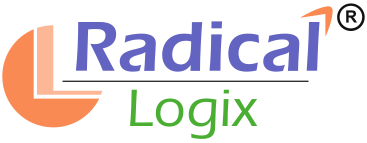School ERP Solutions: The Future of Educational Technology!

We are in a digital transformation era where quick changes are being made to the way we work, communicate, and even educate. Education is one of the industries that has benefited most from this digital revolution. The future of educational technology is School ERP (Enterprise Resource Planning) solutions, which are now available. But what is it, why is it required, and how does it affect how schools operate in the future? Let's start now!
Understanding School ERP Solutions:
A school ERP system, in its simplest form, is a broad software platform that combines several school operations into a single, cohesive system. Imagine that everything is handled digitally, including communication between teachers, students, and parents, attendance tracking, grading, and timetable administration. Sounds practical, doesn't it? Indeed, it is!
Benefits of School ERP Solutions:
- Unified System: With School ERP, educational institutions may use only one program for all of their needs. Everything is available on a single platform, including collecting fee, maintaining student data, and tracking attendance. Time is saved, and the likelihood of data inconsistencies is decreased.
- Improved Communication: ERP solutions provide tools that help instructors, students, and parents communicate more effectively with one another. For example, parents may receive an immediate notification on their child's attendance or academic progress.
- Economical: In the digital age, the protection of private student and employee data is of utmost importance. Encryption, access limits, and regular backups are all used by school ERP software to maintain robust data protection. This protects private data from unauthorised access and potential data breaches, fostering stakeholder confidence in the institution.
- Secure Data Management: In the modern world, data security is crucial. Schools can make sure that sensitive data is securely protected and that only authorized people may access it by using ERP solutions.
- Remote Accessibility: With the popularity of remote learning increasing, having access to educational resources from anywhere is a huge plus. This type of flexibility is possible since the majority of ERP solutions are cloud-based.
Why is School ERP the Future?
Experts believe that ERP systems represent the future of educational technology for a number of compelling reasons.
- Change-Adaptive: Scalable and customized ERP solutions are available today. These systems don't require a whole revamp in order to adapt when educational trends and requirements change.
- Ecologically sound: Digitization lessens the demand for paper, making educational procedures more ecologically sound.
- Analytical Insights: ERP systems have analytical capabilities that assist schools in deciphering trends, such as student performance trajectories or regions that require budgetary attention. Making better educated decisions may benefit from this.
- Global Trends: As more educational institutions across the world use these solutions, there is a common knowledge base and a cooperative effort to hone and enhance these systems.
Can ERP solutions integrate with LMS?
Absolutely! Enterprise resource planning (ERP) and learning management system (LMS) integration is not only feasible but also steadily gaining popularity among educational institutions. These solutions provide a comprehensive approach to school management and online learning when they are smoothly linked.
Understanding ERP and LMS:
Do know about ERP and LMS. Well, ERP (Enterprise Resource Planning) systems typically take care of administrative chores including student enrollment, attendance, financial management, and other related ones.
On the other side, LMS (Learning Management System) is created for the online component of education. It oversees online courses, monitors student development, and enables online communication between teachers and pupils.
Why Integrate ERP and LMS?
- Centralized Data: An integrated system makes sure that all information—administrative or academic—is kept in a single location. This makes data administration easier and guarantees consistency.
- Effective Workflows: Without switching between different platforms, teachers may readily obtain both student administrative data (from ERP) and academic progress (from LMS). Making educated decisions is facilitated by this easy access.
- Real-time updates: Modifications to one system are immediately reflected in the other. For instance, the LMS profile of a new student admitted through the ERP system may be instantly created.
- Improved User Experience: A single platform is significantly easier to use for users, especially students and instructors. They are not need to memorize many logins or use various interfaces.
- More cost-effective in the long run: Managing two distinct systems might be more expensive in the long run than maintaining and training workers on a single integrated system.
How Does Integration Work?
APIs (Application Programming Interfaces) or middleware programs are frequently used in integration. These solutions make it possible for data to 'speak' between the ERP and LMS without any interruptions. It's critical to determine whether an ERP or LMS supports such integrations, either natively or through third-party solutions, while making your selection.
Conclusion: Embracing the Future!
A strategic approach to simplifying operations, improving the learning experience, and putting our institutions in a better, more productive future, school ERP systems are more than just the latest in technology. Schools may effectively leverage the power of digital transformation by identifying their potential and overcoming the obstacles. After all, by influencing the direction of our education, we influence the direction of the globe.



